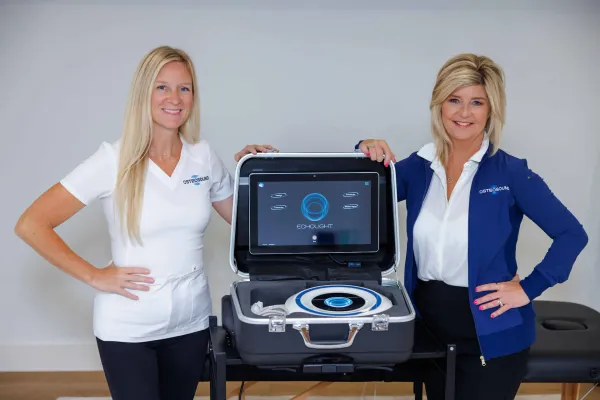MENOPAUSE INCONTINENCE: URINARY AND FECAL

People that experience pelvic health issues such as incontinence often avoid exercise and physical activities that may cause embarrassment. Incontinence is a common problem and left untreated can lead to further health issues, isolation, depression and immobility.
WHAT IS INCONTINENCE? Incontinence is the involuntary loss of bladder or bowel control. There are different types:
1. Stress Urinary Incontinence (SUI):Involuntary loss of urine secondary to an increase in intra-abdominal pressure (coughing, sneezing, laughing, lifting, exercise, or transitional movements).Generally caused by a weak pelvic floor.
2. Urge Urinary Incontinence (UUI): Sudden, involuntary loss of bladder control secondary to a strong and overwhelming urge to go to the washroom.It may be caused by detrusor (bladder muscle) instability, weak or tight pelvic floor muscles, or an unregulated sympathetic nervous system.
3. Overflow Incontinence: The bladder doesn’t empty normally and becomes very full (distended bladder).There is constant loss of small amount of urine (dribbles).This can be seen with conditions such as diabetes, Parkinson’s and after radiation to the pelvis.
4. Functional Incontinence: Involuntary urinary leakage which is associated with impairment of cognitive or physical function (broken hip), psychological unwillingness (dementia), or environmental barriers to the toilet. Involuntary urinary leakage which is associated with impairment of cognitive or physical function (broken hip), psychological unwillingness (dementia), or environmental barriers to the toilet.
5. Mixed Incontinence: Involuntary urine loss associated with increases in intra-abdominal pressure (stress incontinence) and with an intense urge to void (urge incontinence).It is very common to have mixed incontinence.
6. Fecal Incontinence (FI): Inability to control your bowel movements, causing involuntary leakage of stool (feces) from your rectum.It can be occasional leakage while passing gas or can be complete loss of bowel control.
7. Pelvic Floor Muscle Weakness: Under-activity/hypotonicity, or weakness of the pelvic floor muscles may contribute to urinary and fecal incontinence, as well as pelvic organ prolapse.The pelvic floor muscles are a group of muscles that attach to the front, back, and sides of the bottom of the pelvis and sacrum. They are like a hammock or a sling, and they support the bladder, uterus, prostate, and rectum. They also wrap around your urethra, rectum, and vagina.These muscles must be able to contract to maintain continence and to relax allowing for urination, bowel movements, and penetration.
8. Pelvic Floor Muscle Tightness: Overactivity/hypertonicity, or tightness of pelvic floor muscles, may contribute to various types of pelvic pain and/or incontinence, urgency and frequency of the bladder and bowels.Pelvic floor muscle issues are diagnosed by specially trained doctors and physiotherapists using gentle internal and external manual techniques to evaluate the function of these muscles. They will assess your ability to contract and relax these muscles and also feel for points of tenderness.
How to treat weak and tight pelvic floor muscles:
When your pelvic floor muscles are tight and weak, the tension is treated before the weakness. Once the muscles have reached a normal resting tone, and are able to relax fully, their strength is reassessed and strengthening exercises may be prescribed.Kegel exercises and “knack” are used to treat weak pelvic floor muscles.Learning how to relax the muscles in the pelvic floor area are crucial, and doing Reverse Kegels may help in lengthening and relaxing these muscles. Regular deep breathing is also an important part of learning to relax tension in all of your muscles, but particularly the pelvic floor.
Contributed by Sumeet Kaur, Registered PT, Pelvic Floor Physiotherapist, InFocus Rehabilitation Centre Inc, 1-905 702 7891
Resource: www.pelvichealthsolutions.ca





